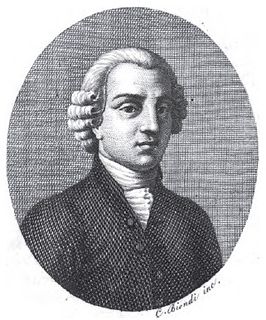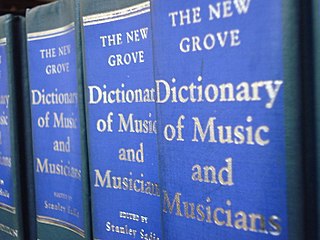
Giuseppe Gazzaniga was a member of the Neapolitan school of opera composers. He composed fifty-one operas and is considered to be one of the last Italian opera buffa composers.

Gioacchino Conti, best known as Gizziello, was an Italian soprano castrato opera singer.
Gioacchino Cocchi was a Neapolitan composer, principally of opera.

Vito Giuseppe Millico, called "Il Moscovita", was an Italian soprano castrato, composer, and music teacher of the 18th century who is best remembered for his performances in the operas of Christoph Willibald Gluck.

Creso ('Croesus') is an opera seria in 3 acts with music by Antonio Sacchini, set to an Italian libretto by Gioacchino Pizzi after Book I of the Histories by Herodotos. The opera was first performed on 4 November 1765 at the Teatro San Carlo in Naples. The libretto was a popular one that had been first set by Niccolò Jommelli.
Vincenzo Fabrizi was an Italian composer of opera buffa.
Marcello Bernardini was an Italian composer and librettist. Little is known of him, save that he wrote 37 operas in his career. His father was most likely the composer Rinaldo di Capua.

Giacomo Domenico Mario Antonio Pasquale Giuseppe Tritto was an Italian composer, known primarily for his 54 operas. He was born in Altamura, and studied in Naples; among his teachers were Nicola Fago, Girolamo Abos, and Pasquale Cafaro. Amongst his pupils were the young Vincenzo Bellini around 1821, plus Ferdinando Orlandi. He died in Naples.
Gaetano Monti was an Italian composer. His name is first recorded in 1758, when he was eight years old, singing in a small part in a performance of Il curioso del suo proprio danno by Niccolò Piccinni. His first opera, Adriano in Siria, was performed in Modena in 1775, and he was later named organist of the Treasury Chapel at Naples Cathedral; there he remained until 1788. Moreover, in 1776 he became an impresario at the Teatro San Carlo. Most of his works were opere buffe, and were seen in theatres in Rome, Venice, and Naples. His most popular works were Le donne vendicate and Lo studente. It was believed at one time that he was the brother of the poet Vincenzo Monti, but this is uncertain.
Pasquale Errichelli was an Italian composer and organist based in the city of Naples. Trained at the Conservatorio della Pietà dei Turchini, his compositional output consists of 7 operas, 2 cantatas, 1 symphony, 3 sonatas, several concert arias, and the oratorio Gerosolina protetta. He was for many years the organist at the Cattedrale di Napoli.

Il prigionier superbo is an opera seria in three acts composed by Giovanni Battista Pergolesi to a libretto attributed to Gennaro Antonio Federico and based on an earlier libretto by Francesco Silvani for Gasparini's opera, La fede tradita e vendicata. It was premiered at the Teatro San Bartolomeo in Naples on 5 September 1733 and received further performances in October. The opera, with its labyrinthine plot involving the rivalry of Metalce and Viridate for the hand of Rosmene, soon sank into oblivion, but its comic intermezzo, La serva padrona was to achieve considerable success when performed on its own.

L'impresario delle Isole Canarie, also known as L'impresario delle Canarie or Dorina e Nibbio, is a satirical opera intermezzo libretto by Metastasio, written in 1724 to be performed between the acts of his opera seria Didone abbandonata. The first performance of the work was on February 1, 1724 in Naples, Italy, at Teatro San Bartolomeo. The composer was Domenico Sarro, also known by the name Sarri, who also revised the work in 1730. The role of Dorina was first sung by the contralto Santa Marchesini, and Nibbio by the basso buffo singer Gioacchino Corrado.

Sì is an operetta in three acts composed by Pietro Mascagni to a libretto by Carlo Lombardo with verses by Arturo Franci. The libretto is based on Lombardo's operetta La duchessa del Bal Tabarin and Felix Dörmann's libretto for Majestät Mimi set by Bruno Granichstaedten in 1911. Mascagni's only venture into operetta, it premiered on 13 December 1919 at the Teatro Quirino in Rome. The operetta takes its name from its central character, Sì, an actress at the Folies Bergère, so called because she could never say no.

Il curioso indiscreto, is an opera in three acts composed by Pasquale Anfossi. The libretto is based on an episode from the 17th-century Spanish novel Don Quixote. The librettist is not known for sure but is thought to be either Giovanni Bertati or Giuseppe Petrosellini. The opera premiered at the Teatro delle Dame in Rome during the Carnival season of 1777.
Giacomo Cordella was an Italian composer.

Sebastiano Biancardi, known by the pseudonym Domenico Lalli, was an Italian poet and librettist. Amongst the many libretti he produced, largely for the opera houses of Venice, were those for Vivaldi's Ottone in villa and Alessandro Scarlatti's Tigrane. A member of the Accademia degli Arcadi, he also wrote under his arcadian name "Ortanio". Lalli was born and raised in Naples as the adopted son of Fulvio Caracciolo but fled the city after being implicated in a bank fraud. After two years wandering about Italy in the company of Emanuele d'Astorga, he settled in Venice in 1710 and worked as the "house poet" of the Grimani family's theatres for the rest of his career. In addition to his stage works, Lalli published several volumes of poetry and a collection of biographies of the kings of Naples. He died in Venice at the age of 62.

Antonio Orefice was an Italian opera composer active in Naples. His Patrò Calienno de la Costa was the first opera buffa in Neapolitan dialect to be performed on a public stage.

Nicola De Giosa was an Italian composer and conductor active in Naples. He composed numerous operas, the most successful of which, Don Checco and Napoli di carnevale, were in the Neapolitan opera buffa genre. His other works included sacred music and art songs. His songs were particularly popular, bringing him fame as a salon composer both in Italy and abroad. De Giosa died in Bari, the city of his birth, at the age of 66.

















